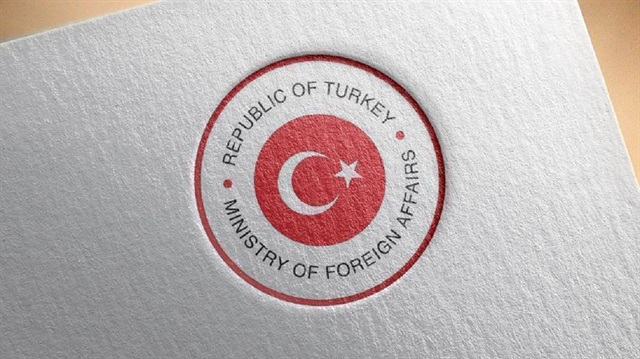
Turkish Foreign Ministry: Greek Cypriot's attitude behind 'failure' of Cyprus negotiations
Turkey on Sunday strongly criticized the Greek Cypriot Administration's "unilateral" hydrocarbon-related activities in the Eastern Mediterranean.
In a statement, the Foreign Ministry said the Greek Cypriot Administration's activities are “in disregard of the inalienable rights on natural resources of the Turkish Cypriot people, who are the co-owners of the Island.
"Within this context, we have most recently observed that there is an intention to commence activities in block number three in the Greek Cypriot Administration’s so-called exclusive economic zone."
Turkey shares the justified concerns of the Turkish Cypriot people on this issue and supports the statement made on Saturday by the Ministry of Foreign Affairs of the Turkish Republic of Northern Cyprus, it said.
"As we have repeatedly emphasized in the past, not only will we continue to protect our own rights and interests in our continental shelf, but we are also determined to take the necessary steps together with the Turkish Republic of Northern Cyprus within the framework of our support to the Turkish Cypriot side."
The ministry said the sole responsibility for any situation that could arise as a consequence falls on the Greek Cypriot side, which, instead of expending efforts towards a just and lasting comprehensive settlement in Cyprus, persists in acting as though it were the sole owner of the island and in continuing its unilateral hydrocarbon-related activities.
"This attitude of the Greek Cypriot side, which does not shy away from irresponsibly jeopardizing the security and stability of the Eastern Mediterranean region, is actually the fundamental reason behind the failure of the Cyprus settlement negotiations to produce an outcome for the past half-century," the ministry said.
The ministry recalled that during the Conference on Cyprus convened last year, the Greek Cypriots demonstrated once again their unwillingness to accept a partnership with the Turkish Cypriots on the basis of political equality, and that because of this, the conference closed without a settlement.
According to the statement, as long as the Greek Cypriot Administration continues its unilateral hydrocarbon-related activities, it will remain evident just how far removed the Greek Cypriot side is from perceiving the Turkish Cypriots as their equal partners.
"We also make use of this opportunity to strongly emphasize our expectation that companies centered in third countries refrain from supporting, through cooperation with the Greek Cypriot Administration in the area of hydrocarbons, this unconstructive Greek Cypriot attitude which also constitutes a major obstacle to the settlement of the Cyprus issue," the statement added.
Cyprus has been divided since 1974 when a Greek Cypriot coup was followed by violence against the island's Turks, and Ankara's intervention as a guarantor power. It has seen an on-and-off peace process in recent years, including the latest initiative in Switzerland under the auspices of guarantor countries Turkey, Greece and the U.K. collapsing in 2017.
Turkey blames Greek Cypriot intransigence for the talks' failure, also faulting the European Union for admitting Cyprus as a divided island into the union in 2004 after Greek Cypriot voters rejected a peace deal.


